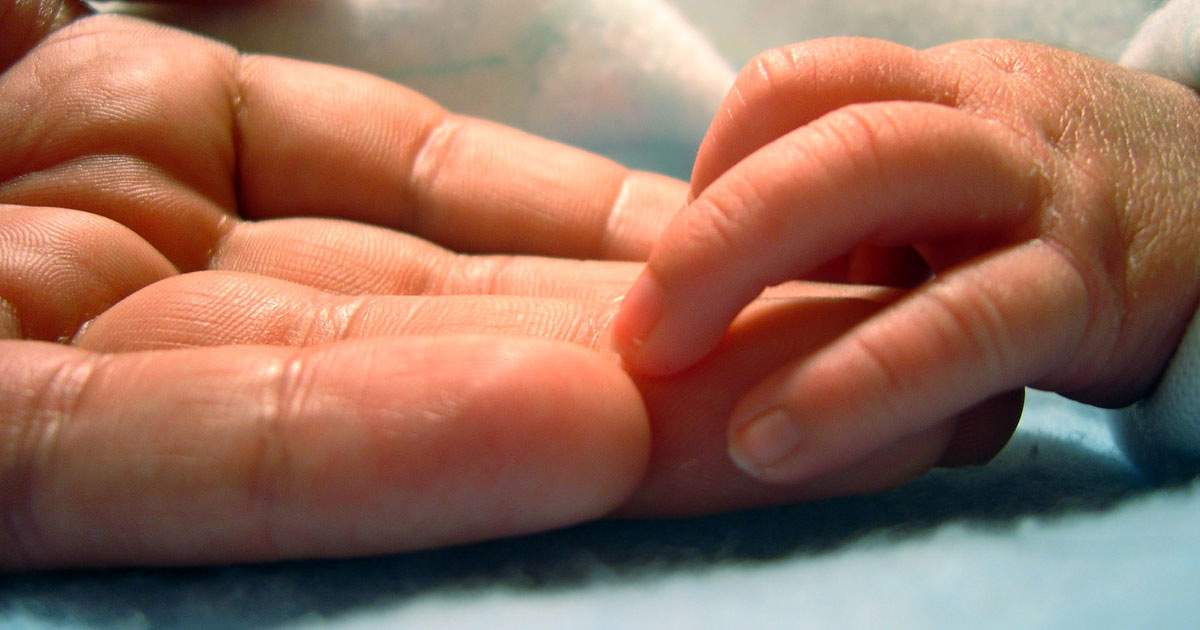Most people do not know that postpartum depression is just one of the mental health issues pregnant and new moms can experience.
As a group these are called Perinatal Mood Disorders (PMD), and they are the most common complication of pregnancy, affecting up to one in five new moms. PMD affects the whole family, as dads are also at risk for paternal depression. Lesley Hetterscheidt, Ph.D, Outpatient PMD Director at Pine Rest Christian Mental Health Services, shared information and resources with us to help our readers—whether they are new moms themselves, or part of a new mom's support system—be aware of the risk factors for PMD, to know the difference between the stress of adjusting to parenthood and PMD, and what to do if you are worried about PMD.
Many new parents experience feelings of anxiety and inadequacy when they bring home a newborn. Knowing the difference between typical "baby blues," which happens in up to eighty percent of new moms, and something more serious can be hard for new parents to identify, and seeking help can add to their feelings of inadequacy. Hetterscheidt says that some parents are at higher risk for PMD than others.
Risk factors include:
- History of anxiety/depression during pregnancy. (This is the No. 1 risk factor.)
- Stressful life events—death in family, loss of job, geographic move.
- Personal or family history of depression, anxiety, or postpartum depression.
- Poor support system.
- Complications in pregnancy or with breastfeeding.
- Complications with the baby.
- History of infertility.
- Perfectionism/high expectations.
- Previous pregnancy loss.
- Financial stress.
- Marital stress.
- Giving birth to multiples.
- Infant being placed in NICU.
- Women with thyroid imbalance.
PMD includes the following, both during pregnancy and up to two years postpartum:
Although there is some education and awareness about depression symptoms, Hetterscheidt says there are other warning signs and symptoms that most people do not know about, including:
- Excessive worry or nervousness.
- Difficulty concentrating.
- Mood swings.
- Scary thoughts (such as worrying that harm will come to your baby).
- Sleep problems – can't sleep or sleeping too much.
- Fatigue.
- Hopelessness.
- Change in appetite – not hungry or overeating.
- Irritability.
- Difficulty making decisions.
- Overwhelmed by a premature birth, multiple birth, infant in NICU, or parenthood in general.
- Feeling overwhelmed, or unable to cope.
- Shame or guilt about parenting ability, feelings, or inability to cope.
- Loss of interest in normally pleasurable activities or normally enjoyed activities.
Also helpful to know:
- Postpartum depression doesn't just happen with a first baby. It can happen with any birth, whether first, or third, or fifth.
- It doesn't discriminate by age—it can be a young mom, or a mom in her thirties or forties.
- It can happen any time during pregnancy and the first two years postpartum.
- It can occur even when the mom has no risk factors, or not occur in a mom that may have many risk factors.
Women can reduce their risk.
If a pregnant woman has risk factors, there are actually steps she can take to help minimize her chance of getting postpartum depression or another PMD. Pine Rest offers a free class that can help reduce the risk of PMD by helping you make a plan. Staff will help you and your support person learn the warning signs and actions to increase health and reduce risk, and provide information on postpartum community resources.
Upcoming dates for the Grand Rapids Postpartum Depression Group: Reducing Your Risk
- Tuesday, July 14, 2015
- Tuesday, October 20, 2015
- Tuesday, January 26, 2016
There are also PMD support groups in Grand Haven and Zeeland.
Untreated, PMDs not only affect the woman, but the entire family. It is estimated that one in five mothers and one in ten fathers experience some form of postpartum/paternal depression. "PMD is the most common side effect of childbirth," Hetterscheidt said, "but it is treatable and there are things you can do to reduce your risk and facilitate recovery."
In addition to educational classes and support groups, Pine Rest offers day programs, counseling, and other support. If you have questions or need help, call Pine Rest's free and confidential "warmline" called the Pregnancy & Postpartum HOPEline at 844.MOM.HOPE (844.666.4673). All are welcome to call—new moms, spouses, partners, parents, siblings, nurses, doctors, pastors, friends, et cetera. Calls are returned within one business day to help connect the person with help and resources.
"Calling for help can be scary. We wanted moms to be connected to an expert who can reassure them that help is out there and they will feel better," Hetterscheidt said. "We want to eliminate barriers so more moms can get help and feel better."
You can also visit www.pinerest.org for more information.




